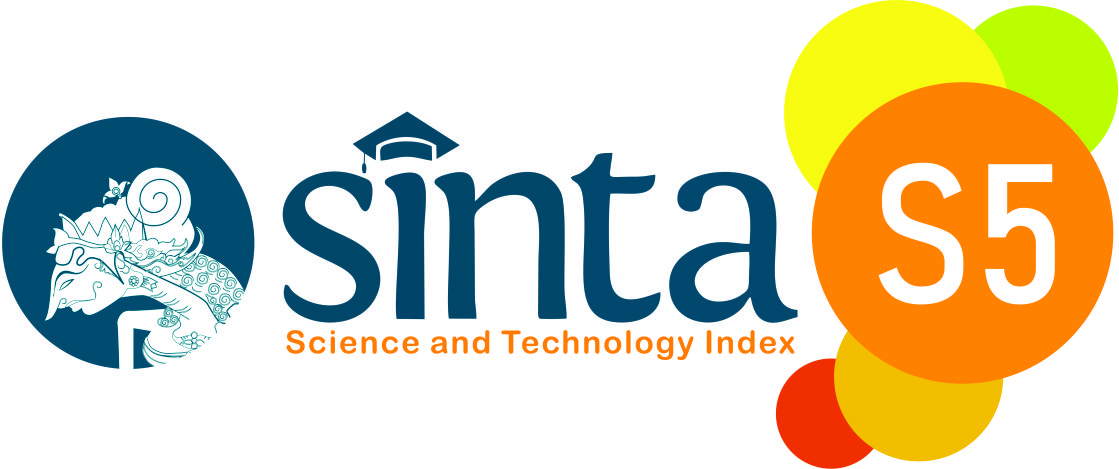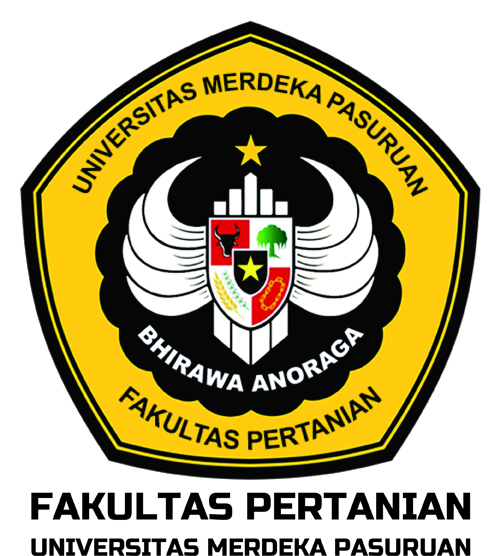Kajian Limbah Lumpur dan Kompos Limbah Perkotaan Untuk Tanaman Sawi (brassica rapa var. Parachinensis) pada Sistem Urban Farming
Abstract
Keywords
Full Text:
PDFReferences
Antonkiewicz, J., Pop?awska, A., Ko?odziej, B., Ciarkowska, K., Gambu, F., Bryk, M., Babula, J.. 2020. Application of ash and municipal sewage sludge as macronutrient sources in sustainable plant biomass production. Journal of Environmental Management 264 (2020) 110450
Beesigamukama, D., Tumuhairwe, J. B., Muoma, J., Maingi, J. M., Ombori, O., Mukaminega5, D., Nakanwagi, J., and Amoding, A. 2018. Improving Water Hyacinth-Based Compost for Crop Production. J.Agric. Sci. Food Technol Vol. 4 (3), pp. 52-63
Bettiol, W., and Ghini, R. 2011. Impacts of Sewage Sludge in Tropical Soil: A Case Study in Brazil. Applied and Environmental Soil Science Volume 2011, Article ID 212807, 11 pages doi:10.1155/2011/212807
Chu, S., Wu, D., Liang, L. L., Zhong, F., Hu, Y., Hu, X., Lai, C., & Zeng, S. 2017. Municipal sewage sludge compost promotes Mangifera persiciforma tree growth with no risk of heavy metal contamination of soil. Scientific REPOrTS | 7: 13408 | DOI:10.1038/ s41598-017-13895-y.
Delibacak, S., Voronina, L., Morachevskaya, E., Ongun, A. R. 2020. Use of sewage sludge in agricultural soils: Useful or harmful. Eurasian J Soil Sci 2020, 9 (2) 126 139
Haryanta, D., Rejeki, F.R. 2021. The Utilization of Sediment Mud In Water Channel And Urban Organic Compost Waste For Sunflower (Helianthus Anuus L.Var. Early Russian) Cultivation. AGRICULTURAL SCIENCE Journal Of Agricultural Science And Agriculture Engineering
Haryanta, D., Thohiron, M., dan Gunawan, B. 2017. Kajian Tanah Endapan Perairan Sebagai Media Tanam Pertanian Kota. Journal of Research and Technology, Vol. 3 No. 2 Desember 2017.
Hastuti, P. B., Rahayu, E., dan Pratama, M. A. 2017. Pemanfaatan Kompos Sampah Kota Pada Pertumbuhan Dan Hasil Tanaman Sawi Sendok Di Tanah Regosol. AGROISTA Jurnal Agroteknologi, 2017. 01 (2): 155-162
John, M. 2016. Production of Organic Compost from Water Hyacinth (Eichhornia crassipes [Mart.] Solms) in the Lake Victoria Basin: A Lake Victoria Research Initiative (VicRes). RRJAAS| Volume 5 | Issue 2 | December 2016
Kabasiita, J. K., Malinga, G. M., Odongo, J. C. W., and Opolot, E. 2021. Factors influencing utilization of municipal solid waste compost among urban farmers in western Uganda. CABI Agriculture and Bioscience (2021) 2:47 https://doi.org/10.1186/s43170-021-00067-2
Kazberuk,W., Szulc,W., Rutkowska, B. 2021 Use Bottom Sediment to AgricultureEffect on Plant and Heavy Metal Content in Soil. Agronomy 2021, 11, 1077. https://doi.org/ 10.3390/ agronomy 11061077
Kiani, M., Raave, H., Simojoki, A., Tammeorg, O, Tammeorg, P. 2021. Recycling lake sediment to agriculture: Effects on plant growth, nutrient availability, and leaching. Science of the Total Environment 753 (2021) 141984
Menyuka, N. N., Sibanda, M., and Bob, U. 2020. Perceptions of the Challenges and Opportunities of Utilising OrganicWaste through Urban Agriculture in the Durban South Basin. Int. J. Environ. Res. Public Health 2020, 17, 1158; doi:10.3390/ ijerph17041158
Rahman, M. M., Sultana, S., Mahmud, M. A. A., Islam, K. N. 2017. Green Manure Potentials of Water Hyacinth and Sewage Sludge: The Seed Germination and Seedling Growth Trials of Albizia Saman. Research in: Agricultural & Vet. Sci. Vol.1, No.1, 2017, pp.18-31
Richardville, K., Egel, D., Flachs, A., Jaiswal, A., Perkins, D., Thompson, A., and Hoagland, L. 2021. Leaf mold compost reduces waste, improves soil and microbial properties, and increases tomato productivity. Urban Agric Region Food Syst. 2022;7:e20022. https://doi.org/10.1002/uar2.20022
Schiptsova, N., Larionov, G., Vasilyev, O., Fadeeva, N., and Terentyeva, M.. 2020. Effect of sewage sludge application on heavy metals contamination in soil and carrot. IOP Conf. Series: Earth and Environmental Science 604 (2020) 012034. doi:10.1088/1755-1315/604/1/012034
Schrder, C., Hfner, F., Larsen, O.C., Krause, A. 2021. Urban OrganicWaste for Urban Farming: Growing Lettuce Using Vermicompost and Thermophilic Compost. Agronomy 2021, 11, 1175. https://doi.org/10.3390/agronomy11061175
Shan, Y., Min L, Zuo, W., Tang, Z., Ding, C., Yu, Z., Shen, Z., Gu, C., & Bai, Y. 2021. Sewage sludge application enhances soil properties and rice growth in a salt?affected mudflat soil. Scientific Reports | (2021) 11:1402
Siregar, D. R., Rauf, A., and Musa, L. 2014. Pengaruh Perlakuan Kompos Sampah Kota Dan Kompos Residu Rumah Tangga Pada Tanah Terhadap Kadar Pb Serta Cd Tersedia Dan Produksi Sawi (Brasillia oleraceae L.). Jurnal Online Agroekoteknologi . ISSN No. 2337- 6597Vol.2, No.3 : 1106 - 1113, Juni 2014.
Sultana, M., Jahiruddin, M., Islam, M.R., Rahman, M.M., Abedin, M.A., Solaiman, Z.M. 2021. Nutrient Enriched Municipal Solid Waste Compost Increases Yield, Nutrient Content and Balance in Rice. Sustainability 2021, 13, 1047. https://doi.org/10.3390/ su13031047
Zafar, S., Farooq, S., Khursheed, I., Hussain, K., Qazi, H., Jaweed, T. H., Lone, F. A. 2021. Sewage sludge and NPK Application to enhance growth, yield and quality of kale and spinach crops. J. Soil Sci. Environ. Manage Vol. 12(4), pp. 132-142, October-December, 2021
DOI: http://dx.doi.org/10.51213/jamp.v6i2.75
Refbacks
- There are currently no refbacks.
Copyright (c) 2022 JAMP Universitas Merdeka Pasuruan
Editorial Office:
Fakultas Pertanian Universitas Merdeka Pasuruan
Jl. Ir. H. Juanda No.68, Tapaan, Kec. Bugul Kidul, Kota Pasuruan, Jawa Timur 67129
Website: https://jamp-jurnal.unmerpas.ac.id/index.php/jamppertanian/index

This work is licensed under a Creative Commons Attribution-ShareAlike 4.0 International License.
View My Stats


















